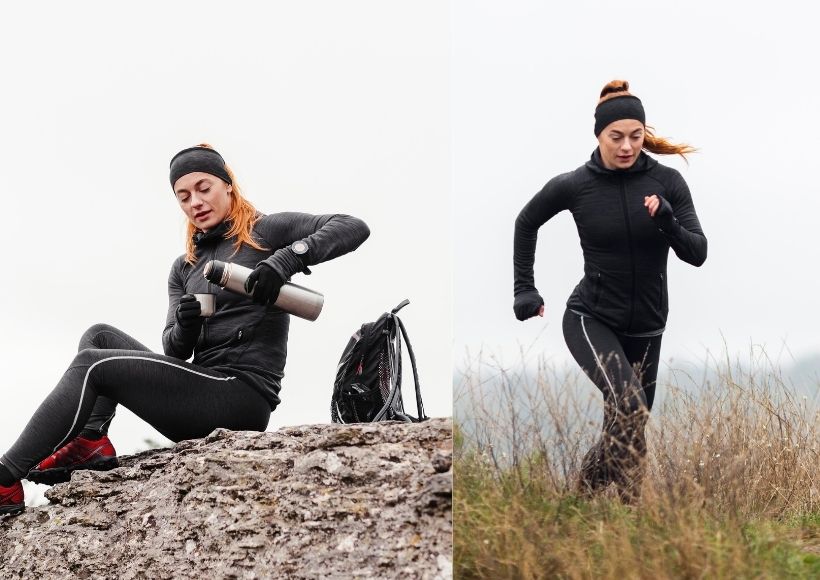Energy kick or a nutrient robber? Opinions about the effects of coffee differ: While some athletes swear by a cup of coffee before jogging to improve performance, other runners have concerns that possible side effects stand in the way of training success.
Table of Contents
Caffeine And Jogging: Is It Okay?
The fact is: Caffeine wakes you up and stimulates circulation. But rumors of a negative impact on the fluid and mineral balance persist.
We have put together seven tips for you on how you can use coffee to improve your running performance.
1. It All Depends On The Timing
Caffeine takes about 30 minutes to take effect in the body. The pulse and blood pressure are temporarily increased and the airways widened. In addition, caffeine promotes the release of fatty acids and glucose in the body. This allows the muscles to be better supplied with oxygen and energy. So having a cup of coffee half an hour before a jog can improve strength and endurance while running.
It has not yet been clarified whether coffee also increases the long-term training effect. However, there are no known negative effects on stamina and muscle building – such as the consumption of alcohol before training.
2. Choose The Right Coffee Ingredients
Black or with milk and sugar? It all depends on your training goal. If you exercise for a certain period of time or for a certain distance, sugar, as a source of energy, can promote the performance-enhancing effect of coffee.
Milk also contains protein and calcium and thus supports muscle function – even if only to a small extent. If, on the other hand, you want to weight loss by running, it is best to drink the coffee black.
3. Don’t Overdo It With Caffeine
Excessive doses of caffeine can cause palpitations, palpitations, tremors, nervousness, and sleep disorders. However, the amount from which these side effects occur varies from person to person. As a guideline, an upper limit of around 600 milliliters of coffee over the day applies.
However, it should not be more than one or two cups before running, otherwise, the diuretic effect of coffee could interrupt the training prematurely.
4. Take Care Of Your Iron Balance
Since caffeine inhibits the absorption of iron from food, you should avoid drinking coffee about an hour before and after eating, if possible. Because iron deficiency can cause anemia cause and affect performance.
5. Beware Of Cardiovascular Diseases
Research has shown that caffeine may constrict the coronary arteries before exercise. What is usually harmless in healthy people can be dangerous for patients with coronary artery disease ( CHD ). Because with them, the coronary vessels are constricted anyway and the oxygen supply to the heart is restricted.
So if you have coronary artery disease, it would be better to avoid coffee before jogging.
6. After Jogging: Refuel Cleverly
For a long time, coffee was suspected of dehydrating the body. In the meantime, however, it has been proven that coffee has no significant influence on fluid balance. Nevertheless, you should prefer mineral water, juice spritzers, or isotonic drinks to quench your thirst.
In addition, a cup of coffee after a run can support muscle regeneration.
Also Read : How To Be A Personal Trainer Or Personal Trainer

